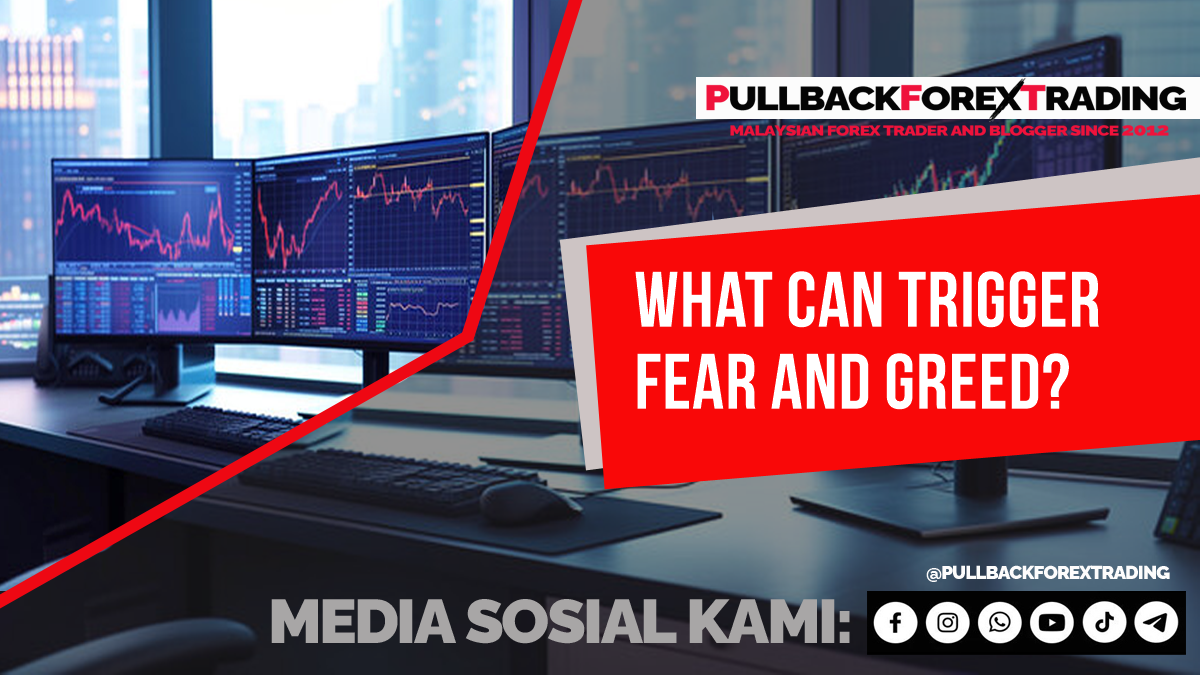
What can Triggers Fears and greed in Trading?
Fear and greed are the two dominant emotions that drive financial markets. Traders often make irrational decisions when controlled by these emotions, leading to poor risk management and unnecessary losses. Understanding how fear and greed influence trading can help traders develop better discipline, improve decision-making, and maximize profitability.
In this article, we’ll explore the psychological triggers of fear and greed, their impact on trading, and strategies to control these emotions for long-term success.
What Triggers Fear in Trading?
Fear arises when traders perceive risk, uncertainty, or potential losses. Some common fear triggers include:
- Large Losses – Experiencing consecutive losses can shake a trader’s confidence, making them hesitant to enter new trades.
- Market Volatility – Sudden price swings create uncertainty, leading traders to exit positions prematurely.
- Negative News & Economic Reports – Bad economic data, financial crises, or black swan events can cause panic selling.
- Overleveraging – Excessive use of margin increases exposure to risk, making traders more fearful of losses.
- Fear of Missing Out (FOMO) – Seeing others profit can create anxiety about missing opportunities, leading to impulsive decisions.
What Triggers Greed in Trading?
Greed emerges when traders seek excessive profits without proper risk management. Key greed triggers include:
- Winning Streaks – Consecutive wins can create overconfidence, leading to excessive risk-taking.
- Leverage & High Returns – The lure of quick money can push traders to take oversized positions.
- Market Euphoria – Bull markets often make traders believe the market will keep rising, causing them to hold positions too long.
- Social Influence – Seeing influencers or traders boast about big gains can tempt traders to overtrade.
- Ignoring Risk Management – Greedy traders often neglect stop-losses and risk controls, aiming for unrealistic profits.
The Impact of Fear and Greed on Trading Performance
Both emotions can have detrimental effects on trading outcomes:
- Fear-based Trading Mistakes:
- Exiting trades too early out of fear of losing profits.
- Hesitating to enter good setups due to past losses.
- Panic selling during market corrections.
- Greed-based Trading Mistakes:
- Holding losing trades too long, hoping for a turnaround.
- Overleveraging to maximize potential profits.
- Chasing price movements instead of waiting for confirmations.
How to Control Fear and Greed in Trading
To become a successful trader, mastering emotional control is essential. Here are some practical strategies:
- Have a Solid Trading Plan
- Define entry, exit, and risk parameters before taking a trade.
- Stick to a consistent strategy rather than acting on emotions.
- Use Proper Risk Management
- Limit risk per trade (e.g., 1% of capital per trade).
- Use stop-loss and take-profit levels to manage risk and lock in profits.
- Maintain a Trading Journal
- Record all trades and analyze emotional triggers.
- Identify patterns of fear and greed in decision-making.
- Follow a Fixed Trading Routine
- Avoid impulsive trading by sticking to pre-planned setups.
- Trade only when conditions align with your strategy.
- Practice Mindset Discipline
- Accept that losses are part of trading and focus on long-term success.
- Stay objective by using data and analysis rather than emotions.
Conclusion
Fear and greed are natural emotions in trading, but successful traders learn how to manage them effectively. By following a structured approach, implementing risk management, and maintaining discipline, traders can make rational decisions and improve profitability.
Instead of reacting emotionally to the market, train yourself to trade with a clear strategy and an unemotional mindset. Master your emotions, and you’ll master the markets.



